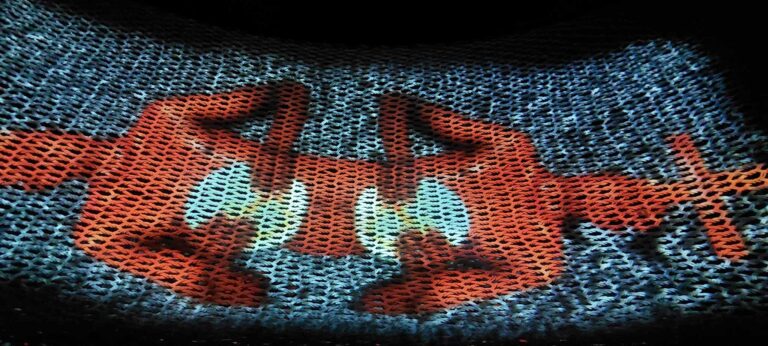Extending the festival song beyond the contest and independence

At this point in the often-fractious adjustment of the business of Jamaican entertainment to the COVID-19 Pandemic, a lot of attention will, naturally, be paid to the gradual reopening of the party business. However, we should not overlook the progress being made in reintegrating established professionals with lesser-known acts into Jamaica’s Festival Song Contest, after some initial criticism about unfair competition last year. Those complaints, primarily from persons who were accustomed to entering a song without expectations of a high standard rivalry, were founded on the inherently flawed premise that instead of the manufacturer raising the quality of their product to meet the potential consumer’s requirements and stimulate increased demand, supply should be restricted to substandard products with a short shelf-life. It simply cannot work in a free market where people have a choice, and there is no shortage of songs for persons to listen to.
This year’s double handful of finalists has less name recognition impact than in 2020, when Minister of Culture, Gender, Entertainment and Sport Olivia Grange appealed directly to Jamaican popular music professionals to submit songs in order to lift the quality and presence of the contest. The result was a list of finalists which included the most recent winner of the Grammy Award for Best Reggae Album, Toots and the Maytals, a nominee for the same award (and 2020 Festival Song Contest winner with “I Am a Jamaican”) Buju Banton, Freddie McGregor, LUST, Shuga and Papa Michigan (who was second). Actress and singer Sakina Deer placed third, with Radix OD and Xtra Bigg, the lesser-known names completing the field.
It is immediately obvious that there is less name brand power among this year’s list of festival song finalists. Lutan Fyah, Fab Five Band (which is making its debut as a contestant, after extensive involvement as a backing band, as well as doing writing and production duties for finalists and winners), Stacious and I-Octane are the contenders with visibility beyond the festival season. So do previous winners Pessoa and Althea Hewitt, although their presence is not as strong. Ernie Wilks, DB, Tamo J, Dez-I Boyd, Reggae Max, Candy and Father Reece have very little or none.
In the half-full or half-empty approach to assessing situations, this changing balance could mean either that the strategy is working, as the entrants who are not established professional performers have improved the standard of their submissions and hence more have made the finals, or it could indicate that fewer professionals are tossing their hats into the ring. Without an analysis of the complete list of entries in 2020 and 2021 there is no telling, but what is certain is that the adjustment in mindset to having the seasoned performers merge with the more seasonal acts is working.
Think of it like finding out that a book that you really like reading is actually an English Literature text, although you have encountered it outside of the classroom setting. While it is always possible that the book would have engaged you anyway (those of a certain generation may have had that experience with To Kill a Mockingbird, Young Warriors, Green Days by the River and Sixty-Five), not being introduced to it as a schoolbook makes a difference. The text has a life outside of the school term and mandatory English Literature lessons. Transfer that to Jamaica’s Festival Song Contest.
For those of us who came to an awareness of the tracks after the relevant competition year, “Bam Bam” (The Maytals, 1968), “Cherry Oh Baby” (Eric Donaldson, 1971), “Noweh No Better Dan Yard” (Tinga Stewart, 1981), among others, are mentally divorced from the Festival Song contest. So are good songs which did not win, such as “All Night Till Daylight” (Jacob Miller, 1976).
And that is how it should be for a festival song entry, whether a winner, a finalist or one which did not make it beyond the preliminary judging stage. This, naturally, leads to a discussion of theme, as many a festival song contest entrant focuses on feel good patriotism, which has implications for appeal outside of the Independence season, as well as outside of a Jamaican demographic. However, what is certain is that in the effort to give the Festival Song Contest winner or finalists in a particular year life beyond the celebratory season it cannot be left to seasonal performers, One of two things has to happen – the song has to be done by someone who has a career all year round, or the song has to be good enough to propel the performer into a presence that lasts all year round.
In this renewed thrust of the festival song contest, instigated by Grange, the first happened last year with Buju Banton’s “I am a Jamaican”. I hope for the latter at some point from here on.
Mel Cooke covered Jamaican entertainment as a print journalist for almost two decades, overlapping with his MPhil research on dancehall and experiential marketing with the Institute of Caribbean Studies, UWI, Mona, where he is now working on a PhD while lecturing in the Bachelor of Arts, Communication Arts and Technology (BACAT) programme at the University of Technology, Jamaica (UTech, Ja.).






